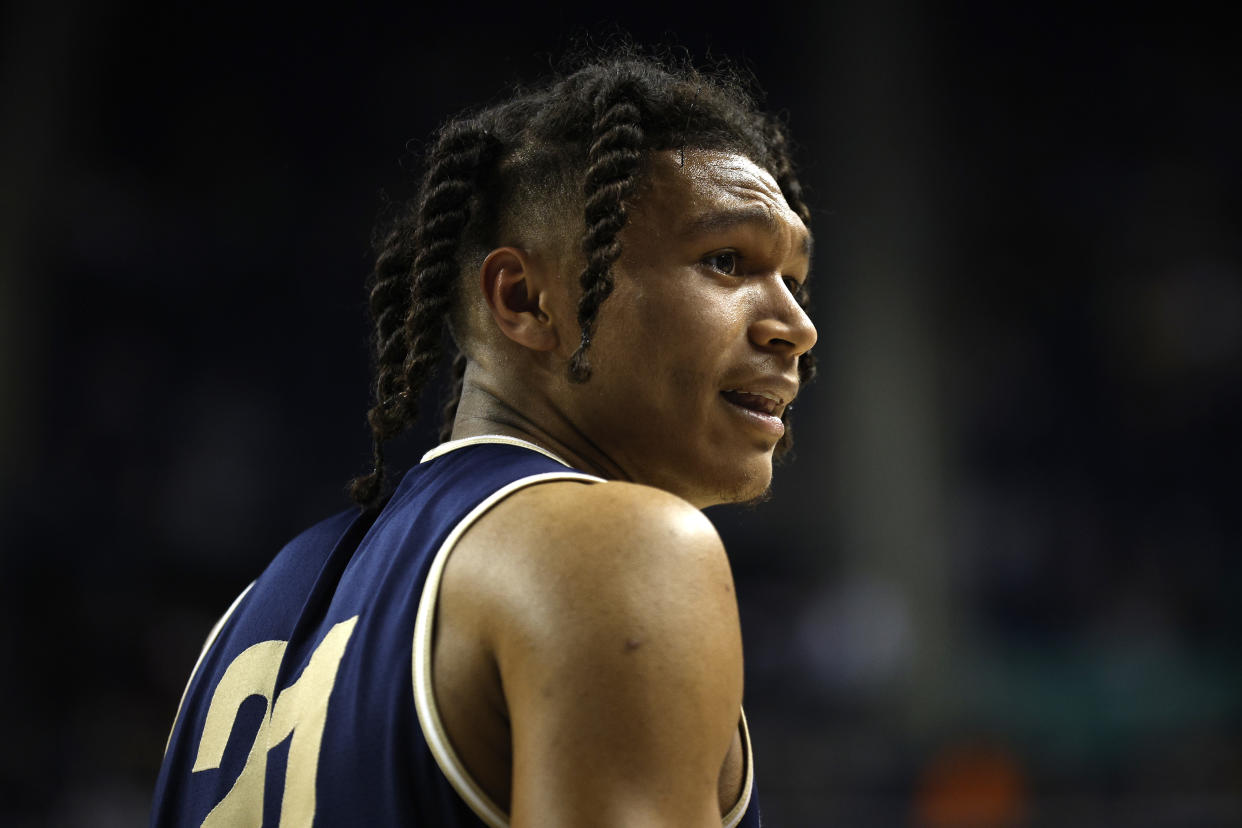Judge's ruling grants all NCAA transfers temporary eligibility, paving way for potential permanent change
A West Virginia judge has paved the way for college athletes to have more freedom in transferring schools.
Judge John P. Bailey granted a 14-day temporary restraining order during a hearing in West Virginia district court Wednesday, giving college athletes who have transferred more than once immediate eligibility at least for the next two weeks and potentially charting a course for more lawsuits from transfers seeking eligibility.
The NCAA announced in a statement that it will follow the court’s ruling.
“As a result of today’s decision impacting Division I student-athletes, the association will not enforce the year in residency requirement for multiple-time transfers and will begin notifying member schools,” the organization said.
This is not a permanent change to the NCAA transfer policy. The court's ruling is only applicable for this 14-day period. The ruling does not forecast for future seasons. The biggest impact appears to be on active transfers for winter sports (ie: basketball) who can now play over the next two weeks.
A preliminary injunction hearing is set for Dec. 27, when the judge is expected to make a more permanent ruling in the case.
The ruling at least temporarily strikes down the NCAA’s policy around athletes transferring for a second time or more. Under current rules, athletes are allowed to transfer once and play immediately at their new school. However, those transferring again need a waiver from the NCAA to play immediately or must sit out a year in what’s called a “year-in-residence.”
The judge’s ruling stops the NCAA from enforcing the year-in-residence for at least the next two weeks.
The ruling comes from a pair of lawsuits against the NCAA over transfer rules — one from West Virginia basketball player RaeQuan Battle seeking eligibility and the other from seven different state attorney generals who want to see the organization’s transfer policy eliminated. The two cases were consolidated and a hearing was held Wednesday morning in front of Bailey in U.S. District Court for the Northern District of West Virginia.

Battle, who testified during the hearing, had his waiver to play at West Virginia denied earlier this year. He is a second-time transfer after beginning his career at Washington and then moving to Montana State.
Two other transferring athletes who had their waivers denied testified in the hearing: Miami (Ohio) quarterback Maddox Kopp and Cincinnati basketball player Jamille Reynolds. All three witnesses explained why they should be granted a waiver. Kopp and Battle left their second schools after the head coach departed for another job. Reynolds left for his own safety, he told the court.
Reynolds and Battle both told the court that the NCAA was preventing them from earning pay from their NIL contracts at each school.
“It’s harder to make more money,” Reynolds said of not playing this season.
Battle compared his “NIL contract” at WVU to an employment contract and says the NCAA is preventing him from accessing his full payment. “I’m not going to get what I signed for,” he said.
In granting the temporary restraining order, the court found that there is a likelihood of success on the merits of the claims. This means the judge believes the state attorney generals will likely prevail on their claim that the NCAA’s transfer waiver rules violate federal antitrust law, according to sports law attorney Mit Winter.
